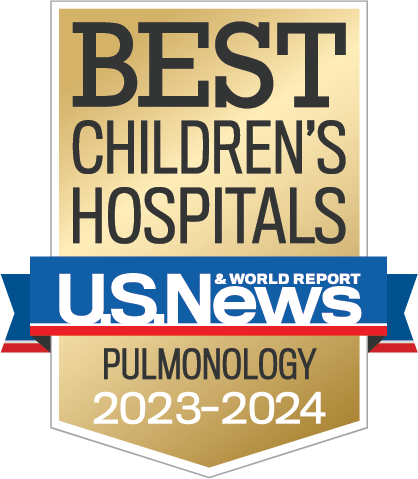- Doctors & Departments
-
Conditions & Advice
- Overview
- Conditions and Symptoms
- Symptom Checker
- Parent Resources
- The Connection Journey
- Calm A Crying Baby
- Sports Articles
- Dosage Tables
- Baby Guide
-
Your Visit
- Overview
- Prepare for Your Visit
- Your Overnight Stay
- Send a Cheer Card
- Family and Patient Resources
- Patient Cost Estimate
- Insurance and Financial Resources
- Online Bill Pay
- Medical Records
- Policies and Procedures
- We Ask Because We Care
Click to find the locations nearest youFind locations by region
See all locations -
Community
- Overview
- Addressing the Youth Mental Health Crisis
- Calendar of Events
- Child Health Advocacy
- Community Health
- Community Partners
- Corporate Relations
- Global Health
- Patient Advocacy
- Patient Stories
- Pediatric Affiliations
- Support Children’s Colorado
- Specialty Outreach Clinics
Your Support Matters
Upcoming Events
Colorado Hospitals Substance Exposed Newborn Quality Improvement Collaborative CHoSEN Conference (Hybrid)
Monday, April 29, 2024The CHoSEN Collaborative is an effort to increase consistency in...
-
Research & Innovation
- Overview
- Pediatric Clinical Trials
- Q: Pediatric Health Advances
- Discoveries and Milestones
- Training and Internships
- Academic Affiliation
- Investigator Resources
- Funding Opportunities
- Center For Innovation
- Support Our Research
- Research Areas

It starts with a Q:
For the latest cutting-edge research, innovative collaborations and remarkable discoveries in child health, read stories from across all our areas of study in Q: Advances and Answers in Pediatric Health.


Cystic Fibrosis
Cystic Fibrosis
We see more, treat more and heal more kids than any other hospital in the region.

What is cystic fibrosis?
Cystic fibrosis (CF) is an inherited disorder that affects the lungs, digestive system and other organs in the body. CF disrupts the normal function of epithelial cells, which line passageways in the respiratory tract, digestive system, sweat glands and reproductive system.
The epithelial cells produce mucus, digestive enzymes and sweat. Typically, those fluids are thin and move easily through the body. But in people with CF, the fluids are thick and sticky. Instead of lubricating passageways, they build up and cause blockages that interfere with breathing, digestion and other essential functions.
What causes cystic fibrosis?
Mutations (changes) in a gene that produces the cystic fibrosis transmembrane conductance regulator (CFTR) protein cause CF. A child needs to inherit two copies of the defective CF gene (one from each parent) in order to get cystic fibrosis.
People with cystic fibrosis don’t produce enough CFTR protein — or the protein doesn’t work the right way. That means the epithelial cells can’t control the way salt passes across cell membranes. Without the proper balance of salt and water in your cells, the body can’t produce the thin coating of fluid and mucus necessary inside the lungs, pancreas, liver and other organs.
How does cystic fibrosis affect the body?
Because cystic fibrosis impacts so many organs, it can disrupt many of the body’s essential functions.
Having CF affects everyone differently, but most changes are related to the disorder’s effects on these organs:
- Lungs: Thick, sticky mucus builds up in the lungs. The mucus clogs the airways. It also traps bacteria, leading to lung infections, swelling and airway damage.
- Pancreas: The buildup of mucus in the pancreas stops the release of digestive enzymes that help the body digest and process key nutrients. Children with CF often have problems gaining weight, even when they are eating a healthy diet.
- Liver: Thick mucus in the liver can block the bile ducts, increasing the risk of liver disease.
What are the signs and symptoms of cystic fibrosis?
Cystic fibrosis causes a wide range of symptoms. Not everyone with CF is affected in the same way.
Some of the most common symptoms of CF in babies and children are:
- Not gaining weight or “failure to thrive”
- Greasy or bulky poop
- Constipation
- Too much intestinal gas
- Salt crystals or salty taste on the skin
- Stuffy or runny nose
- Wheezing or trouble breathing, even when resting
- Persistent cough that produces thick mucus
- Frequent lung infections such as pneumonia and bronchitis
What tests are used to diagnose cystic fibrosis?
Babies born with cystic fibrosis are often diagnosed through newborn screening. If the screening indicates CF, your pediatrician will also do other tests to help confirm the diagnosis.
- Newborn screening: This test is done shortly after birth. Your child’s doctor tests a blood sample for levels of immunoreactive trypsinogen (IRT), a chemical released by the pancreas. High IRT levels can be a sign of CF. If your baby has elevated IRT levels, the doctor will order additional tests.
- Genetic test: This is often performed as part of a newborn screening. If a baby has CF, they will have two copies of the defective CF gene. Genetic testing is important to help determine if your baby needs pancreatic enzymes to digest and absorb food. It is also used to help determine proper treatment.
- Sweat chloride test: A sweat test is used to confirm a CF diagnosis. Once your baby is at least two weeks old, doctors can perform a sweat chloride test. They use a small, non-painful, electric current to carry a sweat-producing chemical into the skin of the forearm. They collect the sweat and measure the amount of salt (chloride) it contains.
After diagnosis, your child’s doctor will perform a variety of tests to check for changes in the body caused by CF. These may include:
- Chest X-rays or chest CT scans to check for lung injury and signs of lung infection
- Blood tests to check vitamin levels, electrolyte (salt) levels, kidney and liver function
- Respiratory (throat swabs and mucus) cultures test for bacteria and microbes in the lungs
- Pulmonary function tests in older children show how well their lungs are working
How is cystic fibrosis treated?
Because CF symptoms are different from person to person, your child’s care plan is customized to meet their specific needs.
The main treatment strategies for people with CF are:
- Airway clearance helps loosen and get rid of the thick mucus that can build up in the lungs.
- Inhaled medicines open the airways or thin the mucus. These are liquid medicines that are made into a mist or spray and inhaled through a nebulizer. They have antibiotics to fight lung infections and other medications to help keep the airway clear.
- Pancreatic enzyme supplement capsules help the body take in vital nutrients. People with CF also take CF-specific multivitamins.
- CFTR modulators target the underlying defect in the CFTR protein. These medications are specific to your child’s specific genes.
Why choose us for cystic fibrosis treatment
If your child is born with cystic fibrosis, where they’re treated can make a big difference to their health and overall quality of life. At the Mike McMorris Cystic Fibrosis Research and Care Center at Children's Hospital Colorado, your child receives world-class care. Our center is the largest pediatric cystic fibrosis clinic in the U.S. Following lots of children with a rare disorder such as CF gives us a wealth of experience that helps us provide the best care to your child.
Our compassionate team of experts is here to answer all of your questions about cystic fibrosis. We’ll help you and your child navigate every step of this journey.
Cystic fibrosis resources
- The Cystic Fibrosis Foundation provides information, resources and support for families affected by CF. The Pediatric Cystic Fibrosis Center at Children’s Hospital Colorado is accredited by the Cystic Fibrosis Foundation, providing high-quality, specialized care to children with CF.
- The National Heart, Lung and Blood Institute and The National Institute of Diabetes and Digestive and Kidney Disorders provide information on CF research funded by the National Institutes of Health.
Next steps
-
Would you like to learn more about us?
Learn more about the Mike McMorris Cystic Fibrosis Research and Care Center -
Do you have questions about your child’s condition?
720-777-6181 -
Are you ready to schedule an appointment?
Schedule an appointment

Compassionate care, wherever you are
We’re here when you need us. Telehealth appointments are available across every specialty, so you can get the high-quality care we’ve always offered from the comfort, privacy and convenience of home.
See if telehealth is right for you
Get to know our pediatric experts.

Kimberly Byrne, CPNP-PC
Certified Pediatric Nurse Practitioner, Certified Pediatric Nurse Practitioner
Patient ratings and reviews are not available Why?

Alexandra Craig, CPNP-AC
Certified Pediatric Nurse Practitioner
Patient ratings and reviews are not available Why?

Jean Milholland, PA-C
Physician Assistant

Ricky Mohon, MD
Internal Medicine, Pulmonology - Pediatric, Pediatrics, Sleep Medicine
Patient ratings and reviews are not available Why?
Children's Colorado in the news
-
HealioLate cystic fibrosis care negatively impacts infant weight, heightAugust 22, 2023
Delayed cystic fibrosis care contributed to reduced weight and height-for-age in infancy through age 5 years. Infants with cystic fibrosis who received care at 47 days old had decreased weight and height-for-age during infancy compared with infants who received care at 10 days old, according to results published in The Journal of Pediatrics.



 720-777-0123
720-777-0123



